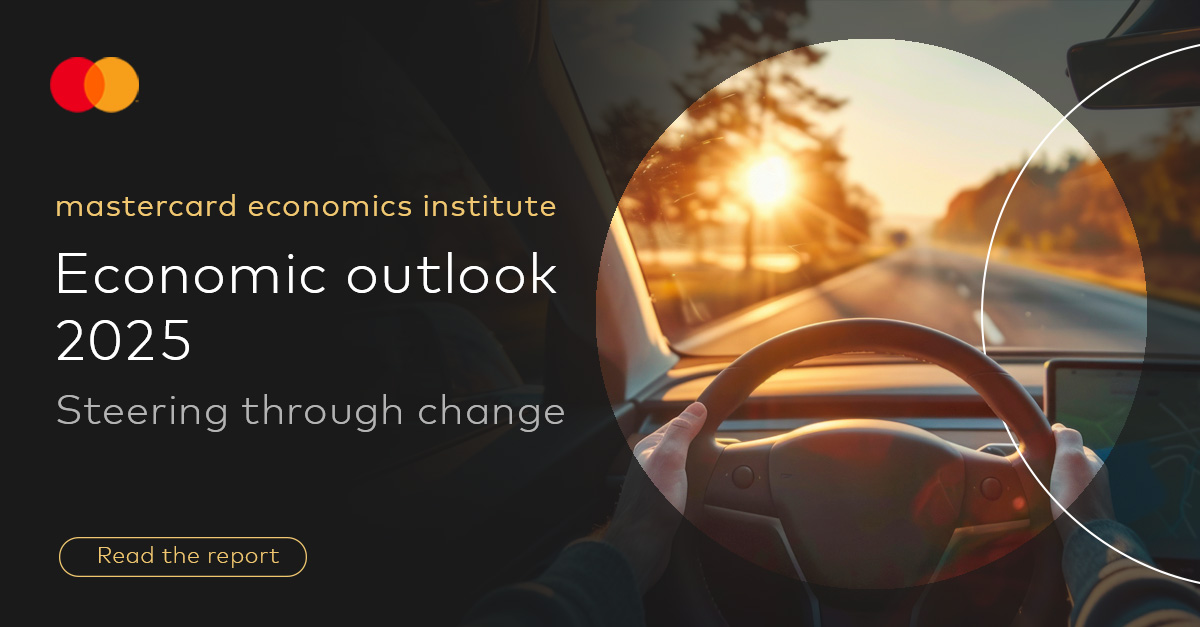Mastercard Economics Institute’s 2025 Economic Outlook for Morocco: Steering through change
March 11, 2025 | Casablanca, Morocco
- Morocco’s GDP is projected to grow by 3.5% year over year, consumer spending is predicted to rise by 3.4%, and consumer price inflation is likely to stabilize at around 2.5%
- Migration is leading to a rise in remittances, with the continued digitization of the payments industry bringing cost efficiencies, security and convenience
Casablanca, Morocco; 11 March 2025: The Mastercard Economics Institute released ‘Economic Outlook 2025’, its annual report identifying the themes that will shape next year’s economic landscape. The global economy has managed through a series of shocks admirably over the past few years. The report anticipates 2025 to be defined by shifts in monetary and fiscal policy and a move toward equilibrium rates for growth and inflation.
In Morocco, the GDP in 2025 is projected to grow by 3.5% year over year, slightly above the global average which is forecasted at 3.2.% – a modest increase compared to 3.1% in 2024. This growth reflects steady economic progress underpinned by remittance inflows and strategic reforms. Meanwhile, consumer spending is predicted to rise by 3.4% this year after inflation to under 1% in 2024 from over 6% in 2022 and 2023. Inflation is expected to stablise at around 2.5% in 2025.
“Morocco’s economic outlook for 2025 underscores its potential for sustainable growth, driven by remittance inflows, stabilising inflation, and structural reforms. These trends highlight the importance of fostering financial inclusion and economic diversification to build a resilient and inclusive economy,” said Khatija Haque, chief economist, EEMEA, Mastercard.
Mohamed Benomar, Country Manager, North West Africa at Mastercard, shared, “At Mastercard, we are driving digital transformation that not only redefines payment experiences but also empowers local communities across Morocco. Through innovative and secure, accessible solutions, we are fostering economic inclusion and enhanced financial resilience.”
Key findings from the report include:
Pricing priorities
Consumers worldwide have been navigating a bumpy road of rising prices over the last five years, largely driven by the pandemic and geopolitical tensions. While inflation—the rate of increase in prices—has slowed significantly, price levels themselves remain elevated. In Morocco, inflation is projected to stabilise at around 2.5% in 2025.
Price stability creates opportunities for sustained consumer spending, particularly in essential sectors such as food, healthcare, and education. However, lingering price pressures continue to influence consumer behavior, with households opting for more affordable versions of discretionary items. Morocco’s real consumer spending growth is projected at 3.4% in 2025, aligning with global purchasing behaviors.
Remittances and money
The last few years saw significant movement in people and, by extension, capital. While this movement results in a loss of human capital, it also generates substantial remittances, which serve as a lifeline for low- and middle-income communities in developing economies. According to the World Bank, global remittances surged from $128 billion in 2000 to $857 billion in 2023, with an estimated growth of 3% in 2024 and 2025. Economic recovery and local reforms are expected to sustain remittance growth through 2025, while the continued digitization of the payments industry allows recipients to shift to digital and mobile channels, resulting in considerable cost efficiencies, security and convenience. The digitization of remittance flows has further enhanced their efficiency and accessibility, reducing transaction costs and enabling timely support for families.
The ‘Economic Outlook 2025’ report draws on a multitude of public and proprietary data sets, including aggregated and anonymized Mastercard sales activity, as well as models that are intended to estimate economic activity.
About Mastercard
Mastercard powers economies and empowers people in 200+ countries and territories worldwide. Together with our customers, we’re building a sustainable economy where everyone can prosper. We support a wide range of digital payments choices, making transactions secure, simple, smart and accessible. Our technology and innovation, partnerships and networks combine to deliver a unique set of products and services that help people, businesses and governments realize their greatest potential.